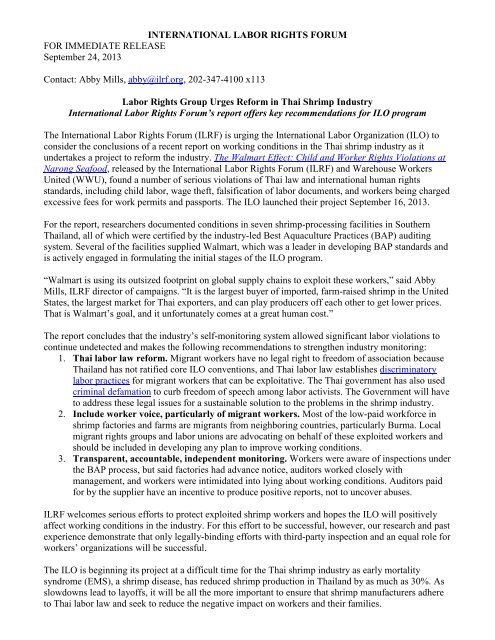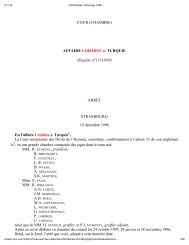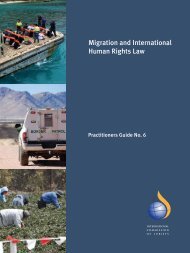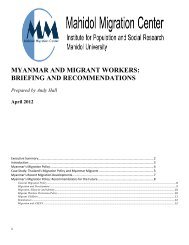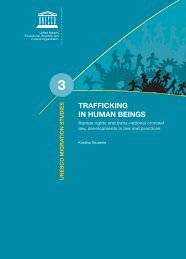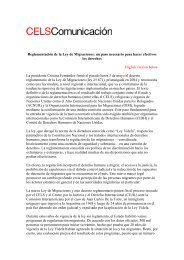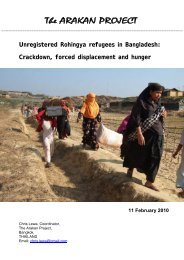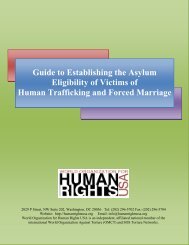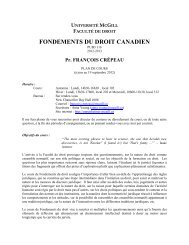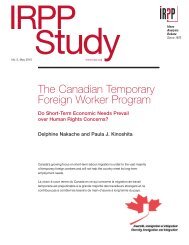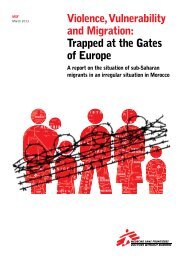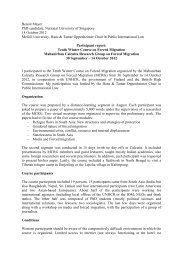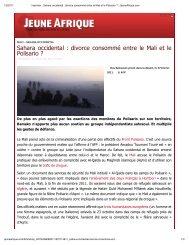Dear Colleagues,
Dear Colleagues,
Dear Colleagues,
Create successful ePaper yourself
Turn your PDF publications into a flip-book with our unique Google optimized e-Paper software.
INTERNATIONAL LABOR RIGHTS FORUM<br />
FOR IMMEDIATE RELEASE<br />
September 24, 2013<br />
Contact: Abby Mills, abby@ilrf.org, 202-347-4100 x113<br />
Labor Rights Group Urges Reform in Thai Shrimp Industry<br />
International Labor Rights Forum’s report offers key recommendations for ILO program<br />
The International Labor Rights Forum (ILRF) is urging the International Labor Organization (ILO) to<br />
consider the conclusions of a recent report on working conditions in the Thai shrimp industry as it<br />
undertakes a project to reform the industry. The Walmart Effect: Child and Worker Rights Violations at<br />
Narong Seafood, released by the International Labor Rights Forum (ILRF) and Warehouse Workers<br />
United (WWU), found a number of serious violations of Thai law and international human rights<br />
standards, including child labor, wage theft, falsification of labor documents, and workers being charged<br />
excessive fees for work permits and passports. The ILO launched their project September 16, 2013.<br />
For the report, researchers documented conditions in seven shrimp-processing facilities in Southern<br />
Thailand, all of which were certified by the industry-led Best Aquaculture Practices (BAP) auditing<br />
system. Several of the facilities supplied Walmart, which was a leader in developing BAP standards and<br />
is actively engaged in formulating the initial stages of the ILO program.<br />
“Walmart is using its outsized footprint on global supply chains to exploit these workers,” said Abby<br />
Mills, ILRF director of campaigns. “It is the largest buyer of imported, farm-raised shrimp in the United<br />
States, the largest market for Thai exporters, and can play producers off each other to get lower prices.<br />
That is Walmart’s goal, and it unfortunately comes at a great human cost.”<br />
The report concludes that the industry’s self-monitoring system allowed significant labor violations to<br />
continue undetected and makes the following recommendations to strengthen industry monitoring:<br />
1. Thai labor law reform. Migrant workers have no legal right to freedom of association because<br />
Thailand has not ratified core ILO conventions, and Thai labor law establishes discriminatory<br />
labor practices for migrant workers that can be exploitative. The Thai government has also used<br />
criminal defamation to curb freedom of speech among labor activists. The Government will have<br />
to address these legal issues for a sustainable solution to the problems in the shrimp industry.<br />
2. Include worker voice, particularly of migrant workers. Most of the low-paid workforce in<br />
shrimp factories and farms are migrants from neighboring countries, particularly Burma. Local<br />
migrant rights groups and labor unions are advocating on behalf of these exploited workers and<br />
should be included in developing any plan to improve working conditions.<br />
3. Transparent, accountable, independent monitoring. Workers were aware of inspections under<br />
the BAP process, but said factories had advance notice, auditors worked closely with<br />
management, and workers were intimidated into lying about working conditions. Auditors paid<br />
for by the supplier have an incentive to produce positive reports, not to uncover abuses.<br />
ILRF welcomes serious efforts to protect exploited shrimp workers and hopes the ILO will positively<br />
affect working conditions in the industry. For this effort to be successful, however, our research and past<br />
experience demonstrate that only legally-binding efforts with third-party inspection and an equal role for<br />
workers’ organizations will be successful.<br />
The ILO is beginning its project at a difficult time for the Thai shrimp industry as early mortality<br />
syndrome (EMS), a shrimp disease, has reduced shrimp production in Thailand by as much as 30%. As<br />
slowdowns lead to layoffs, it will be all the more important to ensure that shrimp manufacturers adhere<br />
to Thai labor law and seek to reduce the negative impact on workers and their families.
Background: Thailand is one of the world’s largest exporters of shrimp. Each year the Thai shrimp<br />
industry exports hundreds of thousands of tons of shrimp (worth roughly $1 billion) to the United States,<br />
its largest export market. The shrimp are raised on farms, peeled, cooked, processed and packaged by a<br />
low-paid workforce that is made up almost entirely of migrant workers from Burma, Cambodia and<br />
Laos. The unemployment rate in Thailand has been below 1% for years, leading to massive inward labor<br />
migration. Up to 10% of the Thai labor force immigrated from Burma, Cambodia, or Laos, and the<br />
majority of those workers are in labor-intensive export industries such as seafood processing, agriculture<br />
and garment manufacturing. The U.S. State Department highlighted problems in Thailand’s fishing<br />
industry in its 2013 Trafficking in Persons Report.<br />
###<br />
The International Labor Rights Forum is an advocacy organization dedicated to achieving just and<br />
humane treatment for workers worldwide. For more information, please visit www.LaborRights.org.


